|
So I woke up feeling glum - I have crazy dream recall, and in last night's nightmare I went crawling back to my old job, defeated. I could feel my shame at the failure of not having found clients. Although I managed to successfully renegotiate my position with my old boss and secure a more visible success path, my internal dialogue kept reminding me I was a failure.
Then I woke up. By 10 o'clock this morning I was able to successfully pitch to a very lucrative prospective client. Aside from that, my week's work calendar now includes two additional prospective client meetings and laying out the draft for two paid assignments. By the time this morning's phone call was done, I realized I'd made some pretty impressive strides, and that was just the beginning. Now I have gratitude for myself and my support system, and pride at those accomplishments. Also, a slight headache. Stupid low pressure system.
0 Comments
Most of my successful peers have advised me to blog every day, several times a day even. For the longest time, I felt somehow disingenuous because I didn't do just that. For some reason, I felt that by not adhering to the "write every day" rule, I couldn't call myself a writer. The thought stilled my hand and kept me silent.
Well, I'm over that. I would rather wait until I have something that I feel is relevant enough to share to post. Quality, not quantity - after all, why would I voluntarily dilute my ideas and words just for the sake of it? I just wanted to write a short post here so as to stretch my fingers and brain muscles. It feels good! Yahaira C. Whenever I get this question, I cringe. The first thing I know right away is that I'm going to have to turn the person down. The second thing? Awkward!
I've got to be honest. When I'm asked to write someone's story, I immediately feel uncomfortable and slightly insulted. Would you go to an established artist and ask them to paint your idea... free of charge? Would you walk into a restaurant, ask the chef to prepare their signature dish, then not pay the tab and pass the recipe off as your own? In other words, I'm gearing up to say no. When someone asks me to "write their story" what I hear is this:
Here's the deal. I'm not a biographer. Anyone asking me to "write their story" is in effect, asking for a biographer. Unfortunately, doing research on finding and paying someone to pen their life's story sounds like a lot of work and a hefty investment. What's not such hard work? Finding out what kind of writing I do. All you have to do is ask. I'm not a publisher, either. Information on publishers is as difficult to get as heading to your nearest library for some research. Pen in hand (or ready with change for the copier) you can look up which Writer's Market literary genre your story would fall into. The alternative is to self-publish. Don't have time to do the legwork on those options? Gee, that's too bad. Nope, not a literary agent! Literary agents come a'knockin when you've published enough and/or you've gotten a big enough fan base. They're the ones who negotiate book deals, tours, and the like. They're the ones who help you get what you want. They're also the ones who help you handle everything from fan mail to negotiating with publishers. It didn't take much searching for me to find an excellent blog post by Neil Gaiman titled, "Everything you wanted to know about literary agents." It's a great, informative read. I'm not a charity. Sure, I do volunteer work here and there. But, I don't live on an ethereal cloud of rainbow-farting unicorns who clothe, shelter and transport me anywhere I want to go. I live in the real world where there are bills to pay, and time is money (especially to a freelancer). I'm not a developmental editor, either. If you have done enough research to know what different kinds of editors and writers there are out there, that's great. One of the reasons I love to write and edit is because of the research involved. Seriously. It's like going on a treasure hunt. I had to amend this post here once more to include information on developmental editing. What is developmental editing, exactly? "Developmental editors help you develop your project from an initial concept or draft, and can consult with you before the writing even begins. Developmental editors can help plan the organization and features of your project. They may make suggestions about content and presentation, write or rewrite text, do research, and suggest additional topics for you to consider." - Northwest Independent Editor's Guild. * I'd like to learn more about developmental editing in the future. At the moment though, it's not part of my writing repertoire. Finally, what I do for a living is just that, a living. It's not a hobby; it's my career. This blog post? This was work. Drafted and revised work that I enjoy doing, and it takes about three to five revisions for me to be satisfied enough to share it publicly. My work might suck, or it might piss people off. It's the risk I'm willing to take because I love what I do. It's worth the risk, every time. What you won't get to experience if I "write your story?" The many hats a freelance writer has to wear. A writer needs to think up, write, edit, vet, revise, pitch, follow up on, negotiate, submit, publish, get paid for and get credit on published work. Freelancers are their own administrative assistants, accountants, researchers and tech support too. You won't feel the stomach-churning nervousness that accompanies waiting for work to be accepted while wishing you could have done just one more revision. The insomnia that follows when your work is accepted and you're waiting for feedback is a given. When you the writer submits a piece, you're at odds with your own perfectionist scrutiny. The part of you that worries about the backlash of a badly-written or incendiary piece is the same part of you that hopes your piece gets enough attention to generate a conversation. Oh, and the free publicity of backlash may not be so bad, either. You won't have to deal with conflicting drafts. You'll miss out on the crashing computer, the layout changes that won't take, and the plethora of calls you have to make and follow up on. You won't be on the receiving end of the dreaded "endless draft" because self-promotion is a static state. The dynamics of a perfectly-told tale can change from one minute to the next thanks to simply being alive. You won't get to experience the frustration of having to turn down attending social events and missed business opportunities because you were too busy. You'll get to sleep through the night undisturbed by all the unfinished work yet to be done. If you're still convinced that I (or any other writer) should "write your story," maybe it's best to think of your inquiry as a type of interview first. Publishing is a business, after all. Think of it this way:
So, before approaching a working processional with a proposal like "write my life's story," be ready. Ask yourself first if you'd sacrifice a quarter of the preparation and work it takes to consider such an undertaking. If you're still compelled to express yourself no matter what the obstacles are, then congratulations! That there is inspiration. By all means approach me or other professional writers whose work you've at least read some of first. Lead in by asking if the writer would be interested in collaborating on a biography or ghostwriting project. Tell them what publishers or self-publishers you've looked up that best meet your needs, genre-wise and otherwise. If the writer expresses interest, supply a list of literary agents you've contacted - or better yet, the ones who have contacted you. Give the writer an idea of the project's scope and some of your end goals. That is something a writer can wrap their head around. It lets us know that you're serious. If not? Don't bother us. We're too busy writing our own damn stories. Haunted in a good way by Neil Gaiman's "make good art" speech - if you haven't listened to or read it yet, drop everything and watch it here - I was particularly struck by one part near the end.
In it, Mr. Gaiman eloquently refers to fear of exposure as being an indicator that creatively, you're finally on the right path. I couldn't agree more. I've struggled with being truthful and writing those stories that need to be told. And yet, the same hesitation is the same impetus that places my creative trajectory along the lines of nonfiction. Nonfiction, creative nonfiction, and magic realism (with some historical creative nonfiction thrown in). The real world is a cornucopia of weird. I've been given the gift of a unique perspective; that is, I recognize weird when I see it (and I see it a lot). So, why squander it? Coming to terms with the stories banging on the inside of my skull sometimes means going down dark paths. Dark paths, in my opinion, are better navigated if one has a guide or companion. Enter the fear of exposure at needing to write something so "truth will out." After I carry around the burden of an untold tale long enough, the insomnia sets in. It's at that point that I realize okay, time to grab this sucker by the horns. The first thing I do is approach others who have had shared experiences... and get my head torn off as a result. See, what I recently learned is this - most people don't want to divulge things unless they themselves volunteer to divulge them. Unfortunately, much like social networking, people in general only want to show the best, brightest and usually embellished aspects of themselves. This goes for self-deprecation as well. At the end of the day, though, it's important to employ the art of diplomacy first. Think of others first. No matter how compelling their story is, it's their story. You can ask permission citing anonymity and investigative journalism. It doesn't matter. Much like social networking, where people generally display their brightest feathers AT you and it's annoying as hell? The first step in investigative journalism should be, "what's in it for them?" Because chances are if there isn't anything in it for potential interviewees you'll get shot down and accused of reopening old wounds. When you're a creative, there's a fine line between genuine interest and condescension. Maybe I'm biased by thinking this, but among people who make a living doing non-corporate, freelance-based work writers get asked redundant questions the most.
A disclaimer: I know that as a rule writers don't generally make a lot of money. I think one thing people don't get is that many creative professionals have a borderline compulsion to do what they do. This impetus is what pushes creatives to soldier on. Long hours, uncredited work, shady prospective clients and the inevitable slew of redundant questions... it's all worth it and more. That said, I woke up this morning with a plaguing thought knocking around in my head (it's usually the intensity of a thought or idea that literally wakes me up most mornings). The thought? How to reply to the question, "Are you published" without coming off like a defensive harpy. I guess my recent inspiration stemmed from this article I'd read last week, titled Forbidden Phrases When a Writer is in Residence or Top 20 Things to NEVER Say to a Writer on the excellent blog The Write Conversation. In the blog post, author Edie Melson puts this one right at the top. There's a reason for this, folks. I've emulated her eye roll response several times. The problem? I don't always have the luxury of answering this question with an eye roll. Sometimes, the people doing the asking aren't in the same room with me. On the surface, it's a legitimate question. After all, many people call themselves writers. It's a bullshit filter. I get it. Where it gets tricky is the why. Why is someone asking? Is the person asking genuinely interested in reading your work, showing support as a fan, or hiring you? That there? That's MY bullshit meter, and a gauge on what response you'll get. To my students (all of whom are not in the same room with me, much less the same country) I tell them "I call myself a writer because I've been published AND paid to to what I do. Besides, I love doing it." 100% true, and something of an over-share. To those snarky people who just want validation for their contribution to a conversation by being the FIRST PERSON EVER IN HISTORY to ask a writer that question? I reserve my New Yorker-honed sarcasm just for you. So far, my responses have ranged from: Are you a publisher / prospective client and interested in hiring me? Are you genuinely interested in reading my work? Check out my website and take a look at my portfolio! To my favorite reply: Yes. Hot or not?I'd posted a very cool tattoo idea on my Pinterest page; a semi-colon (did you see what I did there) on the back of a girl's neck. The post became popular, which is cool. Which means a decent amount of people think the tattoo idea is awesome. Which means that a lot of people are considering getting it, too. Not cool. Here's the original tat I'd considered getting: I really like the idea of getting a chain of punctuation marks in a vertical line. Then I remembered a cute article on Buzzfeed I'd read fairly recently about little-known punctuation marks. A-ha! My favorites so far? Asterism.The Asterism has an awesome name, a cool look, and a really lame usage. It’s for indicating minor breaks in text. It can also mean “untitled,” apparently. Guillemets.Guillemets means “Little Williams,” which is interesting but unhelpful. They’re named after a 16th Century French printer. Their primary role is in non-English languages that use them as quotation marks. I'm always interjecting Spanish or Portuguese phrases that just don't have the impact in English into my speech. One example: Saudade. Because.This one’s so cool. It’s like the “Therefore” sign, but upside-down, and it means because. The best part? If I tattooed both the "because" and "therefore" sign, few people would know what it meant. I'm all about personalized, obscure symbology. Interrobang.It’s a combo-Exclamation/Question mark, and it’s awesome. It is the glorious punctuational equivalent of saying OMGWTF?! Snark.Also called the Percontation Point and the Irony Mark, this one’s used to indicate that there’s another layer of meaning in a sentence. Usually a sarcastic or ironic one. So it is essentially a tool for smart people to use to make stupid people feel even stupider. Which makes it the best punctuation mark of all. Irony and sarcasm. The Mother's milk of a native New Yorker. This one is perhaps my favorite one, too. There are fourteen such little-known punctuation marks in the original article. Some honorable mentions: the Caret, the Dagger (it's pretty neat-looking), the Exclamation and the Question Comma. Read the original Buzzfeed article here.
Modern Vintage Magazine, Issue 8 - Cupcake BurlesqueWriters and other creative professionals will tell you; one of the most difficult aspects of being your own boss is to gain recognition. For writers, having a byline can (and often is) a game changer. The more your name is out there, the more recognized you'll be as a professional in your craft.
Click on the gorgeous two-page spread featuring Jenna Beth Smith, founder of the Cupcake Burlesque troupe to read the article: Wearing ALL the hats can cause a headache sometimes...But that's part of the adventure of being a freelance writer. The keyword here is "freelance." After all, it stands to reason that a woman who's always marched to the beat of her own drum would go this route.
Being my own boss means exactly what it sounds like. From invoicing to time management to project prioritization to tech support, I have to figure out a way to well, figure it all out. After three years of research, bootstrapping and building, I hit a brick wall with social media. I wanted what every one else in my position wants - scintillating, frequent blog posts sent out via professional (yet not ostentatious) social media pages that would make the right people and organizations go, "Wow! She'd be perfect for this project! Let's shower her with money because she's so savvy!" Except for one thing. Facebook thwarted me at every turn. See, here's the thing. There are tons of great books, blogs and organizations that tell you how to accomplish the goal of becoming a freelancer. Sure, just go on (insert popular blog site here), create a blog and VOILA! Well, there's marketing. And creating a Facebook business page. And a supporting Twitter page. And reaching a wider audience. And showing prowess with social media by having it all be tied together with a nice. big. bow. Wearing all the hats means sometimes holding one out for help. The more I tried to do with my business page on Facebook, the more I realized how utterly lost I was. I tried a general search for my page, I tested receiving messages, I tried tagging businesses with relevant or shared professional interests. Nada. So I conducted a search online for help on forums. And fell into rabbit hole after rabbit hole until I was dizzy. Some time ago, I was lucky enough to meet Emily Taffell, social media guru and owner of Mugsy PR in the best way we could have met - by jointly collaborating on a fund raiser event. Having not yet met in person, we quickly realized we worked very well together. I wrote press releases, Emily showed me how to use social media and public relations to make the event a success. And it was. It was through Emily's knowledge of social media that I was finally able to get answers to all my unresolved Facebook social media questions. Social media consulting is one of the many awesome, business-saving services she offers. Thanks to her, I now have a searchable Facebook business page, know how to tag people and businesses, and know to what limits I can use my Facebook Business page. My hat goes off to you, Miss Taffell. Thank you. Has been my singularly most difficult challenge, more so than overcoming my fear of exposing my written work to the public eye.
I have been writing, revising and second-guessing every aspect of my bio for more than a year. When I got started on my seemingly easy task (write a synopsis describing yourself; no more than three paragraphs) all I had to go on was "write in the third person." I know it's the industry standard, but I think it's stupid. A writer. With a bio. Written in the third person. You KNOW that more than likely they wrote it themselves. Here's the catch-22: NOT writing it in the third person is a BIG HUGE CARDINAL NO-NO. Pfft. Biographies are as variegated as the carbon-based populous of this planet (yes, including non-humans). Advice from respected colleagues and peers contradicted what I saw when I went on to writers' websites. Write in the first person - no, write in the third person. Write a short bio/long bio/multi-lingual bio... I can write well enough in Spanish but won't attempt to commit my thoughts to print in my very rusty Portuguese. Here's the thing - how the hell do I get all those accented thingies and the upside-down punctuation marks without using MS Word? Shrug. My head was such a tangle with information overload and self-abnegation that I just stepped away from it. I was finally able to commit something to print yesterday, after countless revisions, comparisons, and "oh no that's just not right, try this" pieces of advice. My bio is short, sweet, and chock full of both personal and professional information. It's not so specific that it alienates, not so formal that it reads like an obit, and not so casual that it makes me look like a buffoon. I hope. |
 WriteHer by Yahaira Cespedes is licensed under a Creative Commons Attribution-NonCommercial-NoDerivs 3.0 Unported License. Based on a work at www.WriteHer.com. Permissions beyond the scope of this license may be available at www.WriteHer.com. Archives
March 2016
Categories
All
|
Photo used under Creative Commons from Daniel Arauz
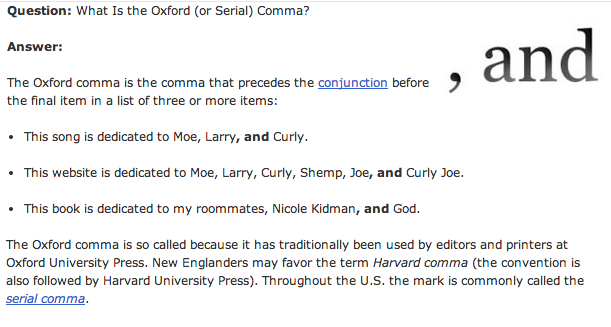
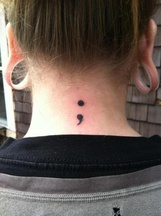
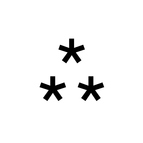
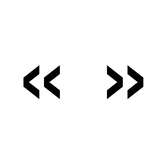

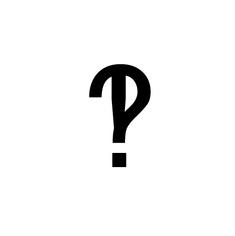
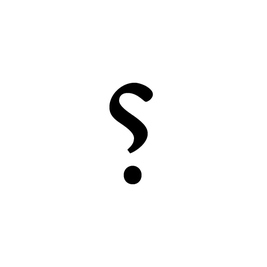
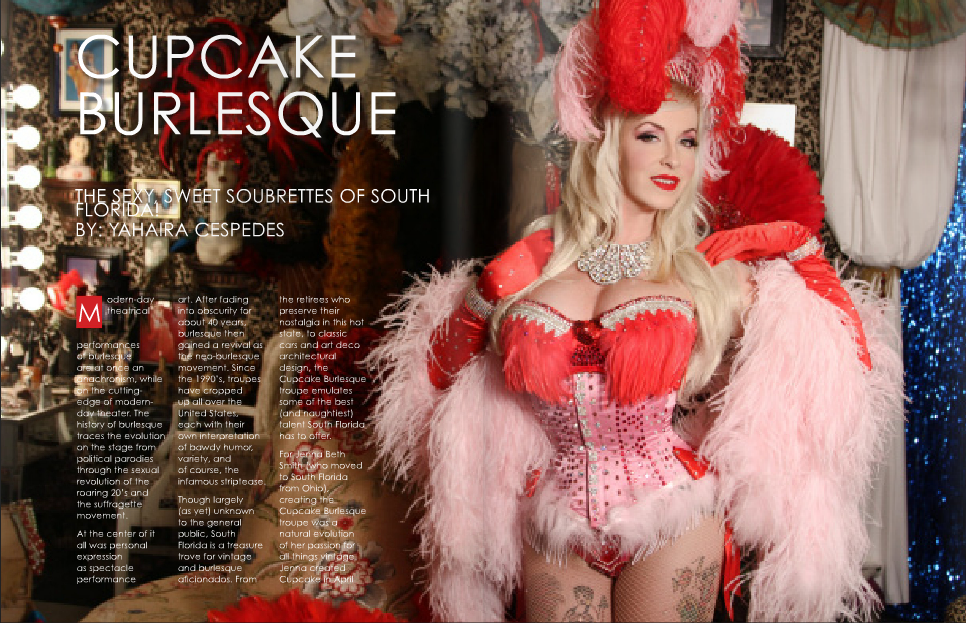
 RSS Feed
RSS Feed
